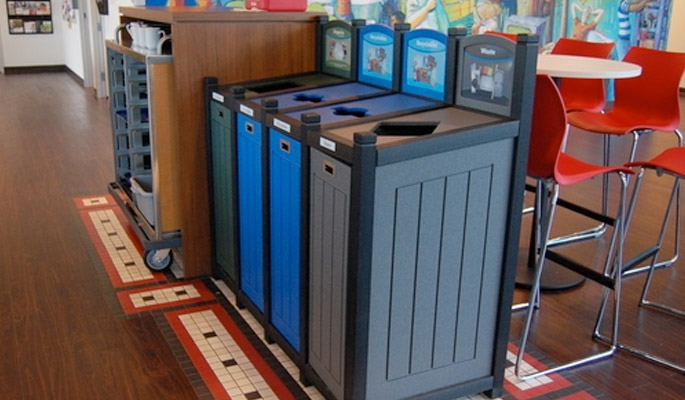
In an article about recycling efforts in Boston, author Barbara Moran cites the many problems that come from single-stream recycling or one-bin-takes-all approaches to recycling. First, many items that get dropped in single-stream bins become “contaminated” from the moment they fall in the bin: paper gets dirty and therefore not reusable and glass breaks and cannot be sorted out. The cost of reprocessing increases at sorting centers, because of all the weeding out of contaminated recycling materials that prove to not make the cut. Due to these issues, the Container Recycling Institute claims that only 75 tons of every 100 tons collected from a single-stream recycling facility gets recycled, with the other 25 tons ending up in landfills. Overall, increased recycling efforts have not improved Boston’s green record significantly.
The City of Boston’s case is important in understanding how offices can improve their green culture. While a single-stream recycling vs. multi-stream station streamlines the process and appears to encourage more recycling by showing a larger quantity of waste, it actually creates more waste than realized. Having different receptacles for each type of recyclable creates real green changes, especially for conscientious offices aiming for a small carbon footprint.
To make it easy for your employees, consider these changes around your office building:
- Provide compound, multi-stream recycling bins. Having bins clearly marked and next to each other encourages people to recycle and compost correctly when they don’t have to guess or search for the right bin.
- Present clear signage for proper recycling to avoid contaminated recycling materials. Place signs near recycling stations to further illustrate what employees can or cannot recycle. You can also add educational facts for each type of material to help encourage recycling efforts.
- Encourage “reduce, reuse, and recycling” culture. You can do this by having trays for misprinted paper near printers that people can use as scrap paper, or simply creating designated space for reusable cups and mugs in the office.
- Educate and reward savings. Let your employees become involved in green initiatives conducted by the company, and share any advances in your goals. Also, consider rewarding your workers with events like pizza parties (without paper plates) when new green efforts show real change in office waste patterns.
For true sustainability, designated recycling bins do go a long way. Until technology advances in cleaning and sorting out all types of materials, multi-stream recycling will save many materials from ending up in landfills.











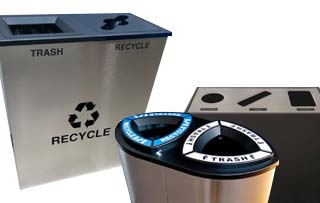









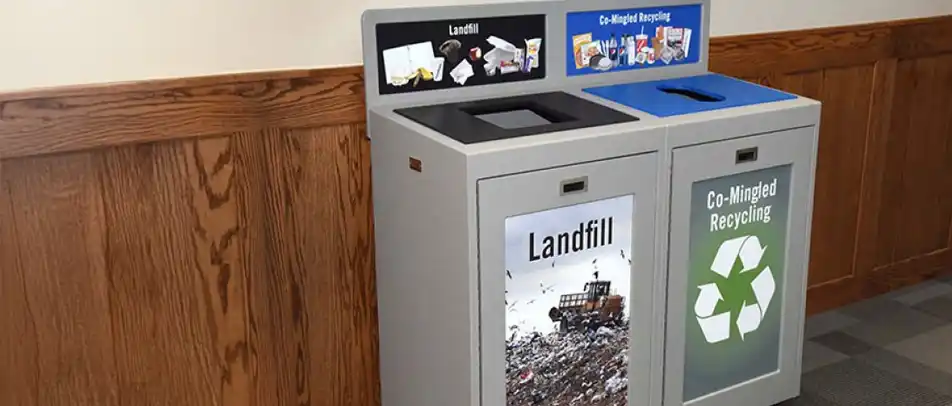










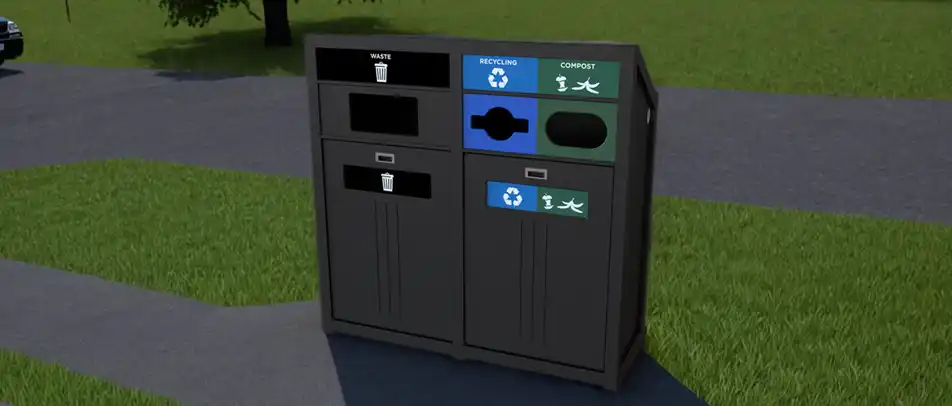












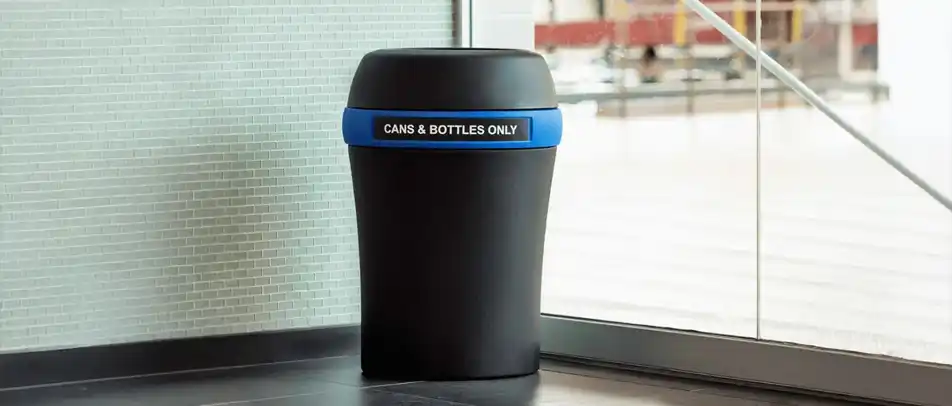









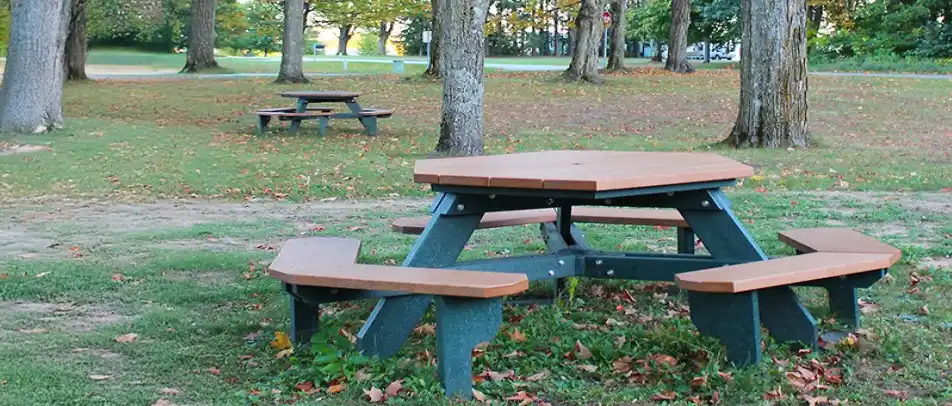
































 Three Ways to Engage Teams and Clients to Maximize Your Recycling Program Engagement
Three Ways to Engage Teams and Clients to Maximize Your Recycling Program Engagement  How to Integrate Accessibility Into Your Sustainability Planning
How to Integrate Accessibility Into Your Sustainability Planning  Why Park Benches Can Promote Workplace Well-Being
Why Park Benches Can Promote Workplace Well-Being 
